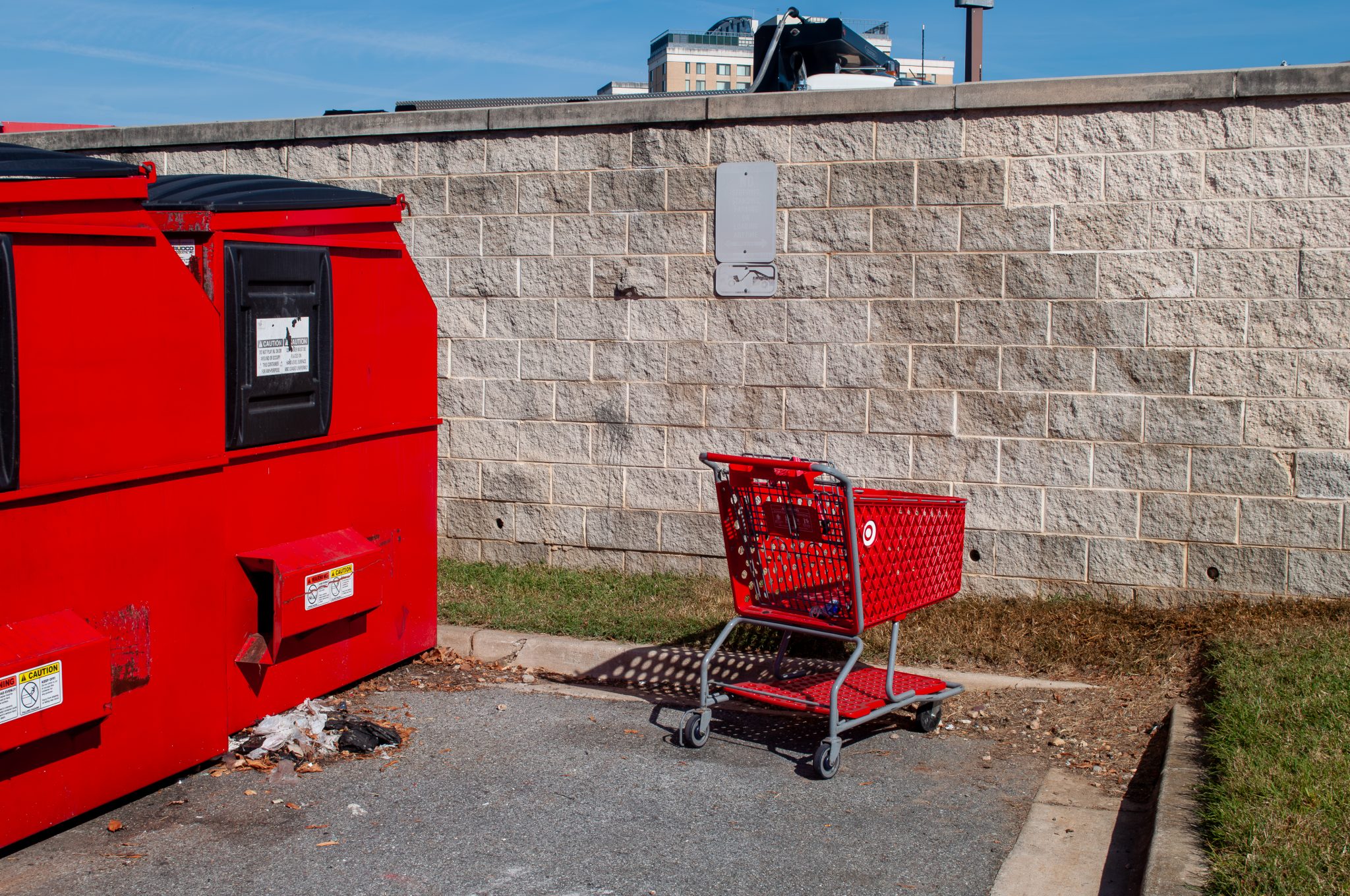Prince George’s County residents and businesses are divided on a proposed county council bill aiming to reduce the number of stray shopping carts.
The bill, initially presented to the Prince George’s County Council in September, would require businesses with at least 20 shopping carts to institute anti-theft measures on their carts.
The measures could include electronic disabling devices, coin deposits, security guards or hiring a cart management company.
“There have been plenty of times when grocery carts have been found abandoned in our neighborhood,” Avondale resident Rachiel Durant said. “It has been a problem.”
Durant said the issue of stray carts in her Prince George’s County community has gone on for years. She believes they bring down property values and neighborhood appearance.
District 2 council member Wanika Fisher was motivated to propose the bill by community complaints and her own experiences seeing abandoned carts, according to the council member’s chief of staff Shanika Griffith. Fisher found a stray cart in her yard and was unsure how to dispose of it, Griffith said.
Durant, who supports the bill, has noticed a similar problem. She has found carts without identifying details around the community, she said.
“Sometimes they don’t even have the name of the [business] on them, so you don’t even know who to call,” Durant said. “You’re sort of guessing.”
[Jolene Ivey wins special election for Prince George’s County Council at-large seat]
Fisher’s bill would require every cart to have a sign displaying the name, address and telephone number of the business. It would also help prevent safety risks from runaway carts that could potentially hit vehicles, Griffith said.
Upper Marlboro resident Harlan Magruder said abandoned carts are a “pet peeve” of his.
When people leave their carts in parkings lots and on corners, it’s “just an eyesore,” Magruder said. Fisher’s bill will help beautify Prince George’s County, he said.
But not everyone in Prince George’s County is in favor of the bill.
If passed, the resolution would fine non-compliant businesses $2,000 dollars per day after they are given a first warning.
Blaise Miller, owner of B.K. Miller Meats & Liquor in Clinton, said the bill would place a burden on businesses.
Miller’s store has about 20 carts in use, with others in storage to replace those that break. He said the bill would require small business owners to spend extra money to protect shopping carts that already have a short shelf life and can cost hundreds of dollars.
“We’re a small company … not Giant or Safeway,” Miller said.
While the bill gives several options for anti-theft measures, businesses only need to select one, which lets stores choose what works best for them, Griffith said.
[Prince George’s County officials hope to improve school transportation, student attendance]
Miller said he has been willing to retrieve his carts when they’re removed from his store’s premises.
But other businesses seem less willing, Durant said.
“I would call the grocery store, let them know there’s a grocery cart in my neighborhood, give them an estimate of where it’s located, and it’ll take days for them to come and pick it up,” Durant said.
The bill presents a “win-win” scenario for businesses and residents, according to Griffith. It would prevent stores from losing carts and ensure carts are kept out of neighborhoods, she said.
Prince George’s County residents can express their opinions on the bill during a public hearing on Nov. 19.



